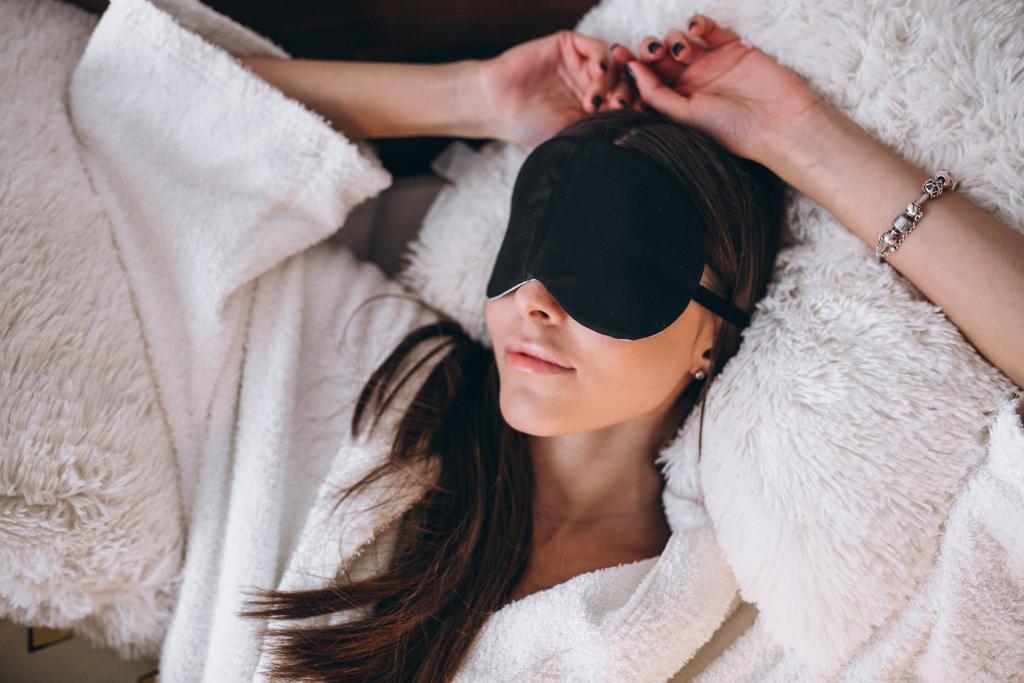Sleep and aging
 Everyone knows that the quality of sleep affects health, appearance and working capacity. High-quality sleep is one of the most important anti-aging factors and the importance of this aspect is only growing as years go by. Sleep disorders may be caused by stress, lighting, noise, disease, inappropriate temperature, unusual environment, change of time zones and other seemingly trivial factors. So why do marks of tiredness that cannot be eliminated even by the strongest cups of coffee appear and remain on our face so quickly?
Everyone knows that the quality of sleep affects health, appearance and working capacity. High-quality sleep is one of the most important anti-aging factors and the importance of this aspect is only growing as years go by. Sleep disorders may be caused by stress, lighting, noise, disease, inappropriate temperature, unusual environment, change of time zones and other seemingly trivial factors. So why do marks of tiredness that cannot be eliminated even by the strongest cups of coffee appear and remain on our face so quickly?
Melatonin – something more than just a sleep hormone
The answer is hiding in a hormone – melatonin. Melatonin is a strong antioxidant that protects cells from free radicals and oxidative stress. If synthesis of this hormone in the body is insufficient, the ability to fall asleep and the quality of sleep suffer. And not only that! Lack of melatonin provokes the glycation process in blood that results in the visual fading of skin tone – collagen tissues stick together, hold water more poorly and deform, slowing down natural skin regeneration processes.
Tired look as a warning
Glycation is a very serious factor in the development of chronic diseases, in particular diabetes mellitus, cardiovascular and oncological diseases. Melatonin Deficit increases inflammatory processes in the body – damages to nerve tissues, muscle tissues and blood vessels and any related diseases develop. The marks we see on a tired face may be a harbinger of more serious health problems. The risk factors of these illnesses can be identified and controlled with the help of specialists of the Anti-aging Institute.
Don’t ignore the problem!
Although we have got accustomed to the dynamic and tense rhythm of life, longer working and leisure hours, this does not improve our quality of sleep. We cannot return the hours of sleep we have already lost, but there is still time to take on healthy sleep habits.
! However, if change of habits and natural products do not help, consult a medical practitioner – prolonged sleep disorders may be a symptom of serious health problems.
- Products strengthening synthesis of melatonin in the body:
Pineapples, bananas, oranges, rice, tomatoes, oat flakes, barley.
- Change of habits:
- An hour before going to sleep avoid bright lighting, looking into the computer monitor or mobile phone screen,
- Every night go to sleep at the same time. This will help your body to get accustomed to a certain sleep schedule,
- Use ear plugs – a comfortable and effective method, which will be particularly helpful when your travel or live close to busy streets and traffic nodes,
- Monotonous noise – it has been noted that the unchanging noise from a fan or air conditioner does not disturb sleep. These sounds supress any disturbing traffic, TV or household noises,
- Calm classical background music – supresses disturbing noises and helps to relax,
- Limit your coffee consumption – if you cannot imagine your day without coffee or other drinks containing caffeine, set a specific time for yourself, after which you no longer drink them,
- Avoid overeating before going to sleep. Digestion of a meal is a hard job – your digestive system may continue working several hours preventing you from falling asleep and worsening the quality of your sleep.
- Natural products:
Natural products may help, if you have mild sleep disorders, however, you should consult your doctor before you use them, especially when you already use other medicines.
- Valerian – helps to fall asleep and promotes deeper sleep,
- Camomile – helps to fall asleep, reduces stress and depression,
- Lemon mint – reduces stress and anxiety.